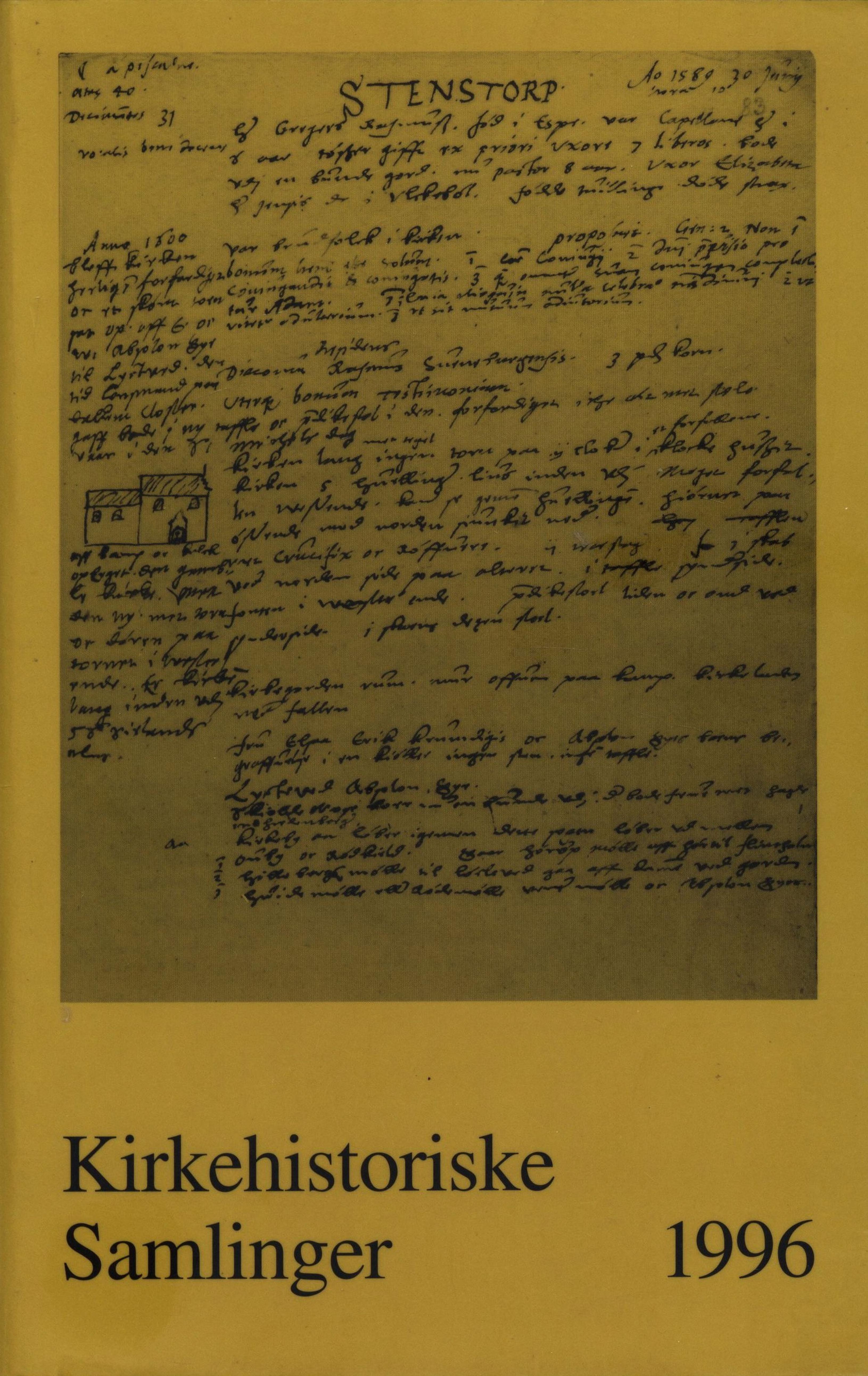Publiceret 15.12.1996
Citation/Eksport
Copyright (c) 2024 Tidsskriftet Kirkehistoriske Samlinger

Dette værk er under følgende licens Creative Commons Navngivelse – Ingen bearbejdelser (by-nd).
Resumé
In 1880 Jakob Scavenius (S.), a fairly young conservative politician and very eager supporter of the cause of national defense, became Minister of Ecclesiastical Affairs and Education in the government of his cousin J.B.S. Estrup. The government had come into office in order to break up the growing opposition party Venstre that demanded cabinet responsibility since it had gained the majority in the Lower House. Estrup leaned on the majority in the Upper House, elected by wealthy voters. S. took an interest in several areas of his ministry but not especially in the church. If I cannot get good laws passed, fortunately we can keep the laws that we have, he wrote to his old teacher C. Lind, who had become bishop in Jutland. The years of S. as minister until 1891 were some of the politically most eventful years in the history of Denmark, and also for the church it was a dramatic period. A popular rising - strongly marked by Grundtvig - had its heyday and demanded that its followers should be able to gather freely around their priests across the parish borders of the National Church, actually greater freedom than could be achieved in the National Church. In the late 188O’es the Home Mission became leading. It was a centrally governed revival movement mostly consisting of vicars. They and a growing number of lay missionaries reached new circles of the population. Often they were quite inconsiderate to the vicars in whose parishes they were preaching. S. more or less gently tried to curb both parties. The majority of the vicars felt pressed between the two loud revival movements. They united to encourage the minister to establish a church management where their opinions should be heard too. This was assented to by the bishops even though they did not agree on a special management. S. intervened and administratively established (it was impossible by law) a church council with the bishops and a professor of theology and one of law as members who »as a rule« were to be heard. The Grundtvigians protested, called it an infringement that would limit freedom. S. had thought that the council could forward moderate reforms, they were necessary if the National Church were to be maintained. But the bishop council was more conservative than he was and feared the Lower House and a chuch system built on the basis of all the members of the National Church. The tough conflict in the middle of the 188O’es, when the government tried to curb the opposition and govern without the Lower House, prevented legislation. In 1888 S. succeeded in passing a law about chuch assessment in Copenhagen. The immigration to the city from the country created large new districts for the lower classes where there were almost no churches. But that law mainly contributed to paying the debts of the few churches that had been built in the 1870’es and for the repairs of old churches, almost nothing for new churches. S., however was able to get government grants for new churches in the country, in growing provincial towns or newly cultivated areas where churches were needed. By appointments of vicars S. has been accused of favouring persons that he knew. This investigation shows that this was not the case. But as other ministers he tried to oppress the opposition and did not refrain from dismissals or intimidation of electors. Towards 1890 some vicars in Copenhagen felt it impossible to work in the huge parishes and eager lay people critizised even more severely also the vicars because they put up with the unreasonable conditions. A strong opinion - supported by the bishop of Copenhagen - caused the minister to set op a commission to look into all the problems. In the 1890’es the growth of the Social Democratic Party caused moderate members of the parties Højre and Venstre to approach each other, and Estrup was to experience that forces in his own party demanded action even though the cause of national defense might suffer for it, i.e. the fortification of Copenhagen which Venstre opposed. But that precisely was S.’s main political goal and his conduct against the attempt at a high political agreement in 1891 was to cost him his ministerial office. Attacks on his private morals and his flirtation with cultural leftist forces only facilitated his resignation. The church had lost a gifted and enterprising minister. Often, however, he lacked the patience to hold on to the tasks he had taken up.

